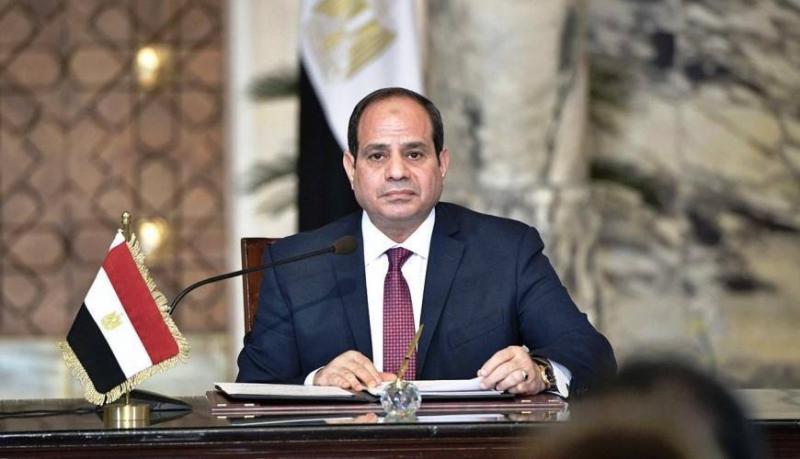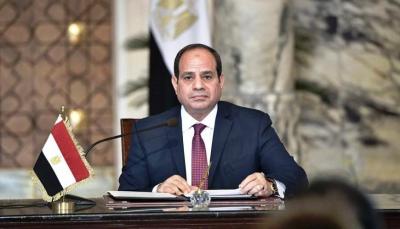The ongoing deterioration of the economy places Egypt under pressure to take long-awaited actions following the presidential elections, foremost among them currency devaluation and interest rate hikes, alongside accelerating government asset sales. Analysts believe the government postponed painful steps until after President Abdel Fattah el-Sisi's re-election for a third term lasting six years in elections held from December 10 to 12, which saw no serious competitors and were overshadowed by the war in Gaza. The focus now shifts to how to address the overvalued currency, near-record inflation, and massive local and foreign debt alike.
Simon Williams from HSBC stated, "There are many significant options that the government must pursue, but a reliable currency is key to achieving a genuine economic recovery." A year ago, the dollar fetched 29 Egyptian pounds on the black market and is now selling for over 50 pounds, compared to the official rate of 30.85 pounds. Forward foreign exchange rates, which forecast the pound’s value at the end of January, predict it will reach 35 pounds to the dollar, while those looking to next year forecast it at around 50 pounds.
Uncertainty about exchange rates has discouraged Egyptians abroad from sending their earnings home, disrupting a crucial source of foreign currency. Transfers dropped by about $10 billion to $22 billion over the 12 months until the end of June 2023. Williams noted, "Remittances are about feeling, not levels. Egyptians must be convinced that the currency is stable now. They need to have confidence in its value. If that happens, remittances could return relatively quickly."
Authorities have implemented three sharp currency devaluations since early 2022, but they have reverted to fixing the rate each time, despite commitments made to the International Monetary Fund (IMF) to transition to a permanently flexible regime. The research department at Morgan Stanley noted in a memo, "We believe a modification of steps is more likely in the short term rather than moving to a floating arrangement."
**Debt Burden**
A $3 billion financial package reached with the IMF a year ago has stalled due to Egypt not allowing its currency to float or making progress in selling state assets. The IMF has deferred the disbursement of about $700 million due in 2023. However, the Fund announced this month that it is in talks to expand the package due to the economic risks arising from the conflict between Israel and the Palestinian Hamas movement, and it seems to have shifted its focus from exchange rates to targeting inflation. IMF Managing Director Kristalina Georgieva told Sky News this month, "Our focus is on making the economy operate as best as possible. In that sense, yes, we prioritize fighting inflation, and then of course we will look at the exchange rate in that context." IMF spokesperson Julie Kozak later stated that Egypt's program includes the need for tightening monetary and fiscal policy, along with a flexible exchange rate system, "to gradually transition to an inflation-targeting framework."
Dollar inflows face new threats following the impact of the crisis in Gaza on tourism and attacks on ships in the Red Sea, preventing some from sailing through the Suez Canal. According to the data from its central bank, Egypt earned $13.6 billion from tourism and $8.8 billion from Suez Canal tolls in 2022/2023. Egypt needs dollars to service its medium- and long-term public external debts, which surged by $8.4 billion in the six months until July 1 to reach $189.7 billion. At least $42.26 billion of external debts are due in 2024. The IMF estimated Egypt's financing gap over the next 46 months at around $17 billion.
**Asset Sales**
Egypt also needs to release accumulated goods in ports and clear overdue payments to foreign oil companies, allowing businesses to send owed funds to their offices abroad, alongside meeting the increasing demand for imports. Egypt previously relied on its wealthy Gulf allies for support, but none have announced any significant aid in recent months. To compensate, the government turned to multilateral financing organizations and a range of friendly countries to secure funding this year from Japan, China, India, and the UAE.
Egypt also relies on raising liquidity from the sale of its government assets, which has faced many challenges in recent years, but some analysts now see a shift. According to Morgan Stanley, "Egypt has made significant progress in state-owned asset sales, attracting historically high levels of net foreign direct investment flows, and achieved its financial targets in 2022/2023 despite increased government spending due to rising inflation and borrowing costs."




